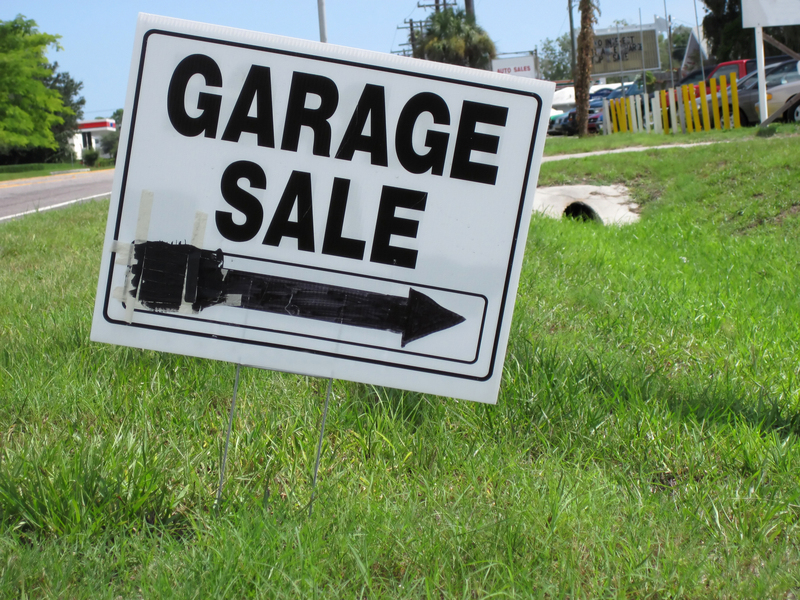From Overwhelm to Order: Clutter Removal Made Simple
Is your home or workspace overrun with stuff? You're not alone. Many people struggle with clutter, but effective clutter removal can transform your life. In this comprehensive guide, we'll show you how to go from overwhelm to order, making the process of tidying up easier and more sustainable than ever before.

Understanding Clutter: Why Does It Accumulate?
Clutter isn't just about having too much stuff. It can creep into our lives for a variety of reasons:
- Emotional attachment to items that hold memories.
- A busy lifestyle with little time left to organize.
- Poor storage solutions or lack of dedicated storage space.
- Difficulty making decisions about what to keep or discard.
- Procrastination and the tendency to leave tidying for "another day."
Recognizing how clutter builds up is the first step to tackling it effectively. This insight is crucial to implementing successful clutter removal strategies.
The Benefits of Decluttering
Before we discuss the step-by-step process for decluttering your home or workspace, it's essential to understand why clutter removal is so important:
- Increases Productivity: An organized space helps you focus better and saves time spent looking for items.
- Improves Mental Wellbeing: Less clutter often means less stress and anxiety.
- Enhances Safety: Fewer items lying around means a reduced risk of trips and falls.
- Makes Cleaning Easier: Surfaces are more accessible and dusting or vacuuming becomes less of a chore.
- Creates Space: Freeing up room gives you space for the things you truly love and need.
Imagine walking into your home and feeling calm and in control rather than overwhelmed – this is what effective clutter removal can achieve.
How to Get Started: The Mindset Shift
Before grabbing boxes and garbage bags, it's critical to prepare mentally for decluttering. Clutter removal isn't just a physical process--it's also emotional and psychological. Here are a few essential mindset tips:
- Set Realistic Goals: Don't expect to declutter an entire home in one day. Break tasks into manageable chunks.
- Adopt a Growth Mindset: See decluttering as a journey toward a better environment, not drudgery.
- Let Go of Guilt: It's normal to feel guilty about letting go of gifts or spent money. Remind yourself that it's the act of decluttering that matters now.
- Visualize the Outcome: Picture your tidy, organized space to boost motivation as you begin clutter removal.
The Step-by-Step Guide to Simple Clutter Removal
1. Make a Decluttering Plan
Don't start randomly. A plan keeps the process organized and less overwhelming. It can be as simple as:
- Listing the rooms or areas you want to tackle, in priority order
- Assigning realistic time slots to each space
- Setting deadlines to keep yourself on track
Pro Tip: Start with an area that will make a big impact, like the living room or entryway, to build visible momentum and motivation.
2. Gather Your Supplies
Effective clutter clearing requires a few basic supplies:
- Sturdy trash bags for trash
- Cardboard boxes for donations or items to sell
- Storage containers for organizing what's left
- Labels and markers for easy sorting
- Cleaning supplies for a fresh finish
3. Apply the Four-Box Method
This classic decluttering system keeps you organized as you sort. Prepare four boxes and label them:
- Keep: Items you use and love.
- Donate/Sell: Items in good condition that you no longer need.
- Trash/Recycle: Broken or unusable items.
- Relocate: Things that don't belong in the current room.
Go through each item one at a time. Make decisions quickly and avoid the temptation to create a fifth "maybe" pile whenever possible.
4. One Area at a Time: The Room-by-Room Approach
Tackling the whole house at once can cause overwhelm. Instead, declutter room by room:
- Entryway: Remove shoes, coats, mail, and create designated spots for daily items.
- Living Room: Focus on books, magazines, throw blankets, and decorative items. Keep only what you love and use.
- Kitchen: Purge expired foods, duplicate utensils, and unused gadgets. Organize cabinets and countertops.
- Bedroom: Go through clothing, accessories, and nightstand items. Donate or store off-season apparel.
- Bathroom: Dispose of old cosmetics, medications, and toiletries. Use baskets for small items.
- Office: Recycle old papers, organize supplies, and clear off your desk for better focus.
Special Tip: If you get stuck or emotional about an item, put it aside and revisit it after you've gained momentum with easier decisions.
5. Organize What's Left
Once you've decluttered, organize your remaining belongings. The goal is order and ease of access:
- Store items by function or category: Keep similar items together.
- Use containers: Baskets, bins, clear boxes, and dividers create designated spaces.
- Label everything: Labels make retrieval simple and encourage everyone to keep things orderly.
- Make use of vertical space: Shelves and wall hooks are great for maximizing storage.
- Keep everyday items handy: Store frequently-used items in easily accessible spots.
6. Remove Clutter Immediately
Don't allow bags and boxes to linger. Schedule a donation pickup, arrange a garage sale, or take things to a recycling center as soon as possible. The faster you remove clutter from your home, the less chance it has to creep back in.
Maintaining an Organized, Clutter-Free Home
Congratulations! You've conquered the chaos and achieved order. But how do you ensure clutter doesn't return? Here's how to maintain your hard work:
- Adopt a one-in, one-out policy: For every new item that enters your home, let go of an old one.
- Set up a donation box: Regularly add items to a donation bin and clear it monthly.
- Do a five-minute tidy daily: A quick pick-up each evening prevents pile-ups.
- Keep flat surfaces clear: Clutter loves surfaces - make a habit of keeping tables and countertops tidy.
- Revisit problem areas: Once a month, quickly re-assess places where clutter tends to accumulate.
Decluttering Tips for Special Situations
Clutter Management for Small Spaces
When space is limited, clutter removal solutions need to be smart:
- Use furniture with built-in storage.
- Hang organizers on doors and inside cabinets.
- Think vertically – shelves can free up valuable floor space.
- Invest in collapsible and stackable storage options.
- Rotate seasonal items (clothes, decorations) out of the main area.
Managing Sentimental Items
Personal mementos are often the hardest to part with. Here's how to simplify:
- Curate instead of hoard: Keep a select few meaningful objects, not everything.
- Digitize memories: Scan old photos or documents to save them digitally.
- Create memory boxes: Dedicate a small, labeled box for sentimental keepsakes.
- Share with family: Pass items on to relatives who may also appreciate them.
Decluttering With Children or Roommates
Decluttering shared spaces? Try these approaches:
- Get everyone involved: Make cleaning up a family or household activity.
- Teach kids early: Encourage children to donate toys and clothes they've outgrown.
- Divide responsibilities: Assign each person area(s) to keep tidy.
- Establish rules: Set clear expectations about shared bookshelf, pantry, or closet space.
Top Myths About Clutter Removal
- "Decluttering means getting rid of everything."
This is a myth. Clutter removal is about keeping what serves you and letting go of what doesn't. - "It's only about aesthetics."
An orderly space looks good, but the benefits of clutter removal are much deeper: improved focus, less stress, more time, and healthier living. - "It takes too much time."
Even 10-20 minutes a day can make a difference. Focus on progress, not perfection. - "You'll need to buy expensive organizers."
Start with containers and boxes you already have. Fancy organizers are helpful but not essential.

When to Call in the Pros
Sometimes, professional declutterers or organizing services can provide the extra push you need. Consider hiring help if:
- Clutter feels emotionally overwhelming or paralyzing.
- You need to prepare a home for sale or a major life transition.
- Physical limitations make it hard to tackle clutter alone.
- A neutral third party is needed to mediate family disagreements about stuff.
Ready to Transform Your Space?
Tackling clutter doesn't have to be overwhelming. By breaking the process down, having a plan, and maintaining new habits, clutter removal can be simple, rewarding, and life-changing.
- Start small, be consistent, and celebrate every victory.
- Your path from chaos to calm begins with one decision at a time.
- Let order replace overwhelm, and enjoy the peace that comes with a clutter-free space.
From Overwhelm to Order: Clutter Removal Made Simple is not just a catchphrase – it's a reality you can achieve today. Happy decluttering!